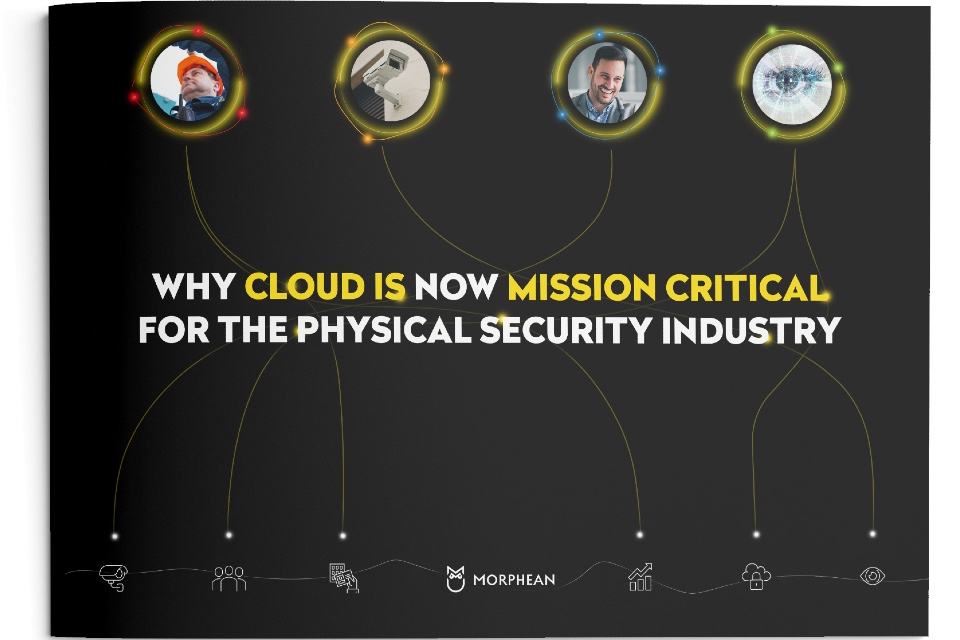When you set up your own business, you want to do everything you can to protect it. It’s your baby, after all. With so many threats out there, both on the internet and in the real world, you’ll want to spend every pound you can to wrap it in metaphorical cotton wool and keep it safe. But that isn’t always realistic.
We understand that many SMEs and start-ups don’t have the biggest budgets; we know that every penny counts when you’re trying to grow a business! But we also believe that protecting your business is going to be one of your top priorities. So with that in mind, high-tech security and software specialists, Morphean, has come up with seven security tips both on and offline that aren’t going to break the bank.
1. Protect from internal attacks
Before you start looking at your business from the outside, it’s important for you to make sure you’re protected from the inside out first. Although you may not want to consider the possibility that one of your employees would wish harm on your company, it happens more often than you think. In fact, did you know that the UK High Court saw an increase of 25% in the number of employees stealing data?
Rather than looking at all your employees with mistrust from now on, take some easy steps towards protecting yourself. First of all, conducting background checks on new starters is a standard policy to have, so don’t be afraid to implement it. Second, have the correct policies and procedures in place to ensure that certain systems and pieces of data have limited access. And finally, take a look at how your company handles dismissals. Not everyone is going to be thrilled at the idea of being let go, but being empathetic and sensitive when it does happen can greatly lessen any feelings of anger and resentment.
2. Cyber education
When it comes to staff old and new, it’s important that everyone is educated and trained on how they can do their bit to protect your business. That goes for security both on and offline. And it’s not expensive to do!
You can start by providing training on keeping computers and devices safe. That means how to create secure passwords, how to spot phishing emails and the correct procedures to follow when using own devices or when working from home. If your business is growing, schedule regular sessions so that everyone entering is up to date, and anyone can attend for a refresher course if they need to.
3. Update your systems
We’re all guilty of hitting ‘remind me tomorrow’when your computer suggests a systems update, but it’s more important than you think, especially if that update is for your anti-virus software. A lot of SMEs and their employees will neglect software updates, often due to having more pressing issues to deal with, but failing to stay up-to-date can actually leave you vulnerable to some of the most severe types of cyber security attacks.
Having anti-virus software in place is fantastic and a real must-have investment for your business. Not only does it keep your device virus free, it also protects your identity when browsing online, the identity of your business, and can help to detect and neutralise fraud attempts when shopping online.
4. Store your data externally
Where does all your company information go? What happens when your computer breaks or in the event of a hack or systems failure? It’s essential that you have a current remote backup of your entire system and data, and the best way to do this is by having a cloud solution. This is stored external of your business on a cloud system where you can access it remotely and add new data as and when you need to.
Undoubtedly this is the most expensive of our tips; good cloud storage from a trustworthy and reputable provider isn’t going to be cheap as chips, but it’s going to be one of the most important investments you’ll ever make. Your data is the lifeblood of your business, so make sure you protect it accordingly.
5. Lock and key
Whether you’re in a building of your own or share your office with other businesses – more on this later – it’s important that you invest in strong and high quality locks. Anti-snap locks and deadbolts are good for exterior doors, and roller shutter doors for warehouses provide that extra layer of security.
Rather than giving a key to all staff members, consider giving keys to just your senior management team, as long as you can guarantee that one will always arrive early to open the office. The fewer people have access then the security risk is lessened. And remember to instill good practices in those who do have keys; perhaps you could have an ‘end of the day’ checklist near the door that reminds people to check windows, blinds and front door locks?
Work on building a strong relationship – this costs nothing! – with your local locksmith as these are the ones you will be asking to come out at short notice should anything go wrong.
6. Take a look outside
If you’re an SME or start-up, then chances are you’re going to be based in a larger building with other businesses. With that in mind, there may already be a number of security measures in place, which is fantastic. But if you’re in a building alone, you’ll want to make sure your premises is protected.
How does your building look from the outside? Lights outside the building at night can be a great deterrent as criminals will like to work in the shadows for fear of being seen, and these are cheap and easy to install. Is it worthwhile investing in a CCTV system? If you’re only talking one or two cameras these don’t have to break the bank. Perhaps consider installing blinds that can be pulled down at night to stop any valuable items being seen from outside. And finally, internal lights on a timer can also be an effective deterrent and aren’t expensive at all.
7. Triple check your vendors
Our final security tip is about keeping the operations of your business safe. Many SMEs will use external providers and vendors for equipment and resources in order to function properly, but it’s important that you do your due diligence.
Make sure you check out all vendors and contractors before entering into a contract with them. Check out their reviews, speak to other businesses who use them (better yet, use recommended vendors) and take a look at their credit report; are bills paid on time? Could they go out of business soon or unexpectedly? How long have they been up and running? If anything raises a red flag, no matter how small, then don’t be afraid to take your business elsewhere.
Image by Mabel Amber, still incognito… from Pixabay







